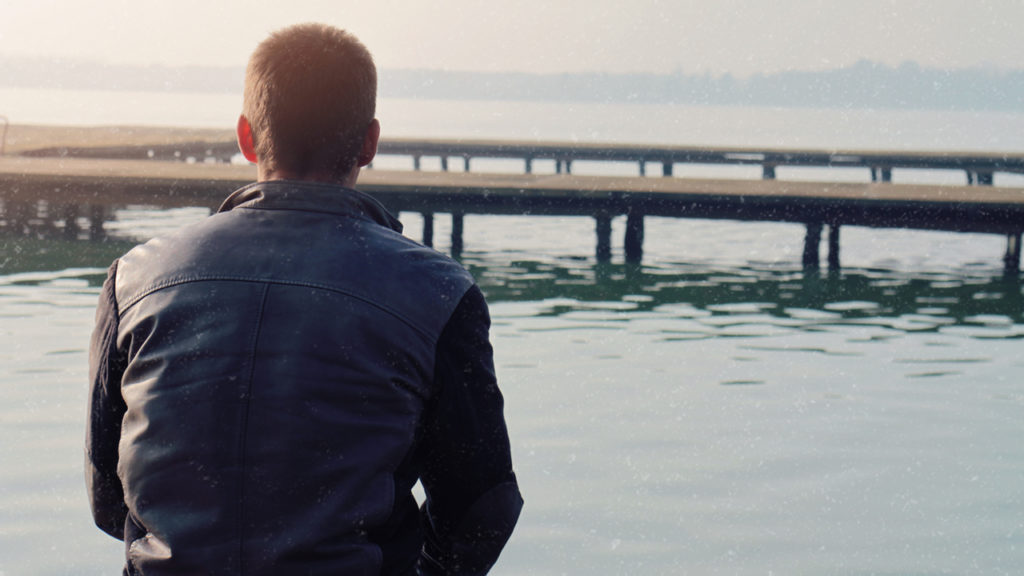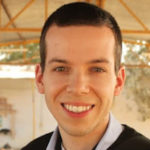The soft candlelight flickered warmly off the brick walls of the old restaurant and danced in the eyes of the guests that filled the small room. Forty pairs of them were there, all fixed on me and the girl sitting to my left.
The murmur of conversation over the banquet table, the clink of glasses and the scraping of forks and knives had ceased. Guests rose to break the silence. Some told stories. Others offered thanks and encouragement. All said how my bride-to-be and I had blessed their lives.
The rehearsal dinner is not the time to negotiate your views on marriage. And with my wedding waiting on the other side of the morning, I wasn’t.
But as unfiltered praise washed over me, I began to realize how miraculous this whole event was, and not just the beautiful flowers or the tender filets. My bride-to-be and I felt suspended in a state of emotional perfection. There was no way that love should have so permeated this room, no way that we could’ve impacted so many people. And there was definitely no explanation for the fact that at 22 years old and fresh out of college, I felt no fear of marriage.
I’ve always wanted to be a husband, but a walk through my family history reveals why this is a miracle.
My father died five months before I was born. When the skin cancer took him, my mom faced the task of raising my 3-year-old brother and me alone. She gave me the first name Jonathan, calling me “God’s gracious gift” in the midst of her sorrow.
Later in life, I came to know my dad through faded Polaroids, yellowed with age, stagnant snapshots of what I could only imagine as an animated life. I saw my face in his younger years, a near reflection but with crooked teeth and buzzed hair. As the album pages turned, he began to favor my brother — taller, leaner, with sad brown eyes. Sometimes my mom glimpsed his mannerisms in me at dinner or on the baseball field. Growing up knowing that I’d never know him, I latched onto those moments. Somehow, across time, genetics united us. My proof was embedded in her memory.
Pastor Daddy
My mom remarried when I was 2 to a once-divorced pastor serving as a music minister in a small church near the Army base in our city. He was “Daddy” to me as soon as I could speak, but matching the label with the relationship as I grew older was a different story.
Daddy was a good man, a provider who instilled in me manners, respect and dignity. We weren’t wealthy, but never lacked for anything, thanks to his strange dichotomy of occupations. During the week, he worked at a prison, dealing with unstable inmates that could make nooses out of toilet paper. On Wednesdays and weekends, he was a rural Baptist pastor. Some might joke that the skill sets required for both weren’t all that different. The serious truth was that either job would’ve been emotionally taxing enough on its own. The stress piled up, making him impatient and combative. I had a better relationship with Daddy than my brother did, but we both felt little emotional connection and received discipline as anger, not love.
Sometimes at night, I’d ask God to let me see my “real daddy,” as if he’d been hiding behind a curtain all along. Maybe he would understand the injustice I was enduring. Mostly those prayers were immature complaints from a kid unwilling to accept fair punishment, but embedded in them was a longing for a true father to teach me how to navigate life. Daddy always put food on the table. He was a mainstay at my baseball games, and I appreciated that. But he never moved into the dark and dangerous places in my heart where I needed a man’s influence most.
When I turned 12, tensions in my house skyrocketed. Daddy began having an inappropriate relationship with a woman in the church. About the same time, my 16-year-old brother began experimenting with the newfound freedom his Chevy Blazer provided.
It all unraveled. Sometimes I witnessed the fist fights between Daddy and my brother. Others, I woke up to an overturned kitchen table, a casualty of a previous night’s battle. Eventually Mom and Daddy took a break from each other, and — adding insult to injury — our whole family was kicked out of the church we’d loved and served for seven years. It felt like a really long movie — a mix of horror, suspense and a little desperate comedy. I had a front row seat to what happens when the head of a household melts down.
Five Guys
But God’s grace was active in the pain, and Daddy’s fall set in motion events that would begin reversing the curse the enemy had spoken over my life. I had received a faulty definition; I didn’t know the right one, but God put it in my heart to seek it.
We moved back into town, and the divorce became official, despite my mom’s protests. I began attending a church on my own and ended up in a Monday night Bible study with five guys and a mentor. If God was assembling a team to take back marriage, He’d drafted poorly. Instead of an all-star team, we looked more like the Bad News Bears of Christianity, a ragtag group of youngsters on a playing field full of obstacles that were out of our league. Four in our group had either experienced divorce or saw its effects as the products of a second marriage.
Billy* had become one of my best friends. Old baseball foes in middle school, we came together at church. Through a random prayer pairing one night, we realized that both of our families were crumbling. That same year, we officially became products of broken homes.
Although equally devastating, our stories were different. While my wayward brother, dead father and pastor Daddy blended to create an unorthodox cocktail of troubles, his was a classic split. At 11, Billy began to feel the rumblings of discontent between his parents, but it wasn’t until eighth grade that everything erupted. He was always loved and taken care of; he never dreamed he’d become a casualty of their unhappiness. Then he found himself in a courtroom facing a multiple-choice question with no right answer: With which parent would he and his sister live?
Paul, another Monday night group member, had no squabbles with his dad, but that was mostly because he lived in Florida with a second family. Paul spent summers there, and back at home, his elder brother clashed with any male figure their mother brought into the home. By the time Paul and I became close in high school, she was single again.
John’s story was less dramatic but was a classic case in the failures of modern American men. Battling depression and buckling under the financial pressure of a large family, John’s dad checked out of life for about a decade, turning to television to escape the stress. As a result, John had to look elsewhere for fatherly instruction. We didn’t know it at the time, but his parents’ marriage would later crumble.
Just as alcoholics can’t go into a bar to learn sobriety, we didn’t wallow in past wounds and expect them to heal. Gradually, though, we lived all the stories and felt their pain, and our community became a laboratory where we could test what God taught us through older men.
By His grace, our empathy led not to a collective sense of self-pity, but to a solemn pact: Because we knew the true Father, we would be the generation that patches up our forefathers’ misdeeds. We would reverse the curse.
The Wedding
The banquet room was silent again as my mother rose and began to read. She had been in this room 30 years before, when she and my father were the honored guests at their own rehearsal dinner. When the family toasted a long and happy life, they had no idea what lay ahead.
As Mom spoke, I looked around the room at each of the guys. The next day they’d stand behind me as I awaited my bride.
Billy had married a month before me. Paul would marry a year after me. John had become the spiritual rock of his family. Ethan, my best man, would learn to further appreciate his parents’ long and successful marriage and find a love of his own.
Each of us was a testament to God’s desire to restore what’s broken. Like shattered bits of glass pieced together by unseen hands, we became a lens on God’s glorious ability to use the very forces that fracture us to once again make us whole.
*Friends’ names have been changed to protect the fragile relationships mentioned in this article.
Copyright 2013 Trevor Williams. All rights reserved.












